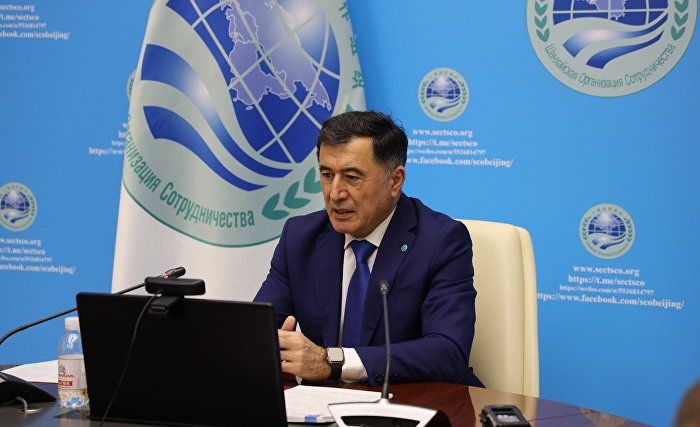
On November 30, 2020, the Council of Heads of Government (Prime Ministers) of the SCO member states held a videoconference meeting.
SCO Secretary General Vladimir Norov in his speech stressed that despite tough conditions of the coronavirus pandemic, organization members could continue the course to strengthen trade, economic and humanitarian relations by the SCO countries, improve the mechanisms of cross cooperation and increase the international authority of the Organization.
Following the SCO summit held on November 10, the member states confirmed their commitment to joint work to overcome the socio-economic consequences of the pandemic, including a number of important initiatives aimed at establishing direct ties between medical institutions, cooperation in combating poverty, food security, industrial and energy cooperation, the development of digital literacy, as well as support for small businesses.
In this regard, V. Norov, suggested holding preliminary expert meetings for a substantive study of the goals and objectives of the initiatives put forward. He stressed the importance of continuing the practice of holding meetings of the Consortium of Economic Analytical Centers in conjunction with meetings of heads of government, and also noted the initiative to launch a new platform – the SCO Economic Forum.
Andrew Sheng, the expert of the University of Hong Kong’s Asia Global Institute believes, that a focus on developing domestic consumption will be important for China as its economy recovers. “China,” he says, “has come to the so-called Ford moment where if you pay your employees and treat them better, they will buy your national product. Domestic consumption will be a key growth driver for China, but it must be environmentally friendly “.
The foreign expert community summarized that the SCO is an active member of international relations. It makes significant investments in ensuring peace and security, settlement of international and regional conflicts exclusively through diplomacy. The SCO member states advocate the formation of a multipolar world order based on generally accepted principles of international law and equal international relations.
At present, the SCO acts as one of the pillars of the emerging world order. The participating countries will continue the vector and will deepen the political dialogue. Further contacts and cooperation on a wide range of issues with other countries and international organizations that are not members of the SCO are being promoted. At the same time, the number of countries wishing to participate in the SCO is growing every year.
